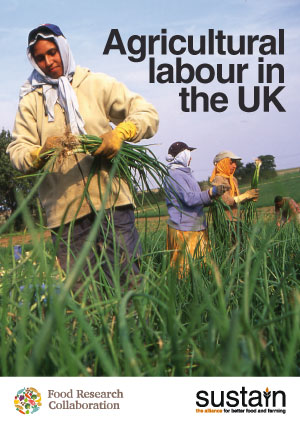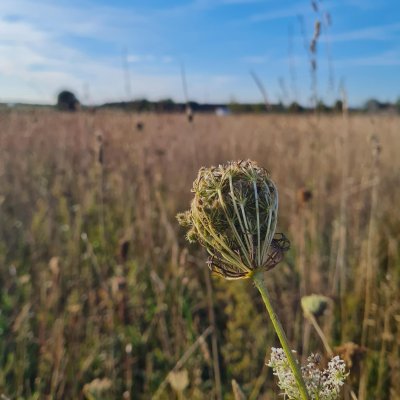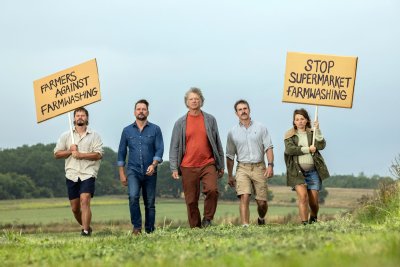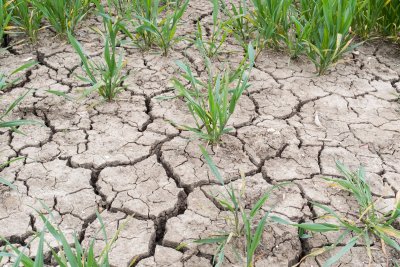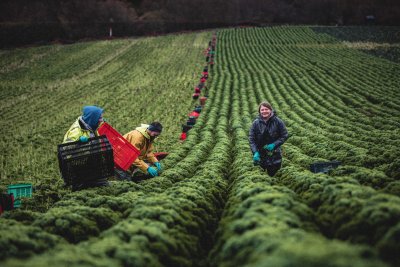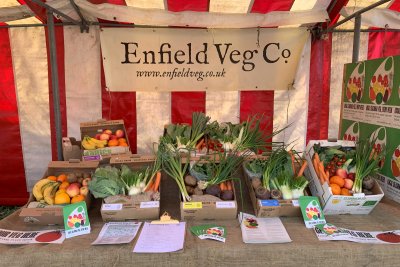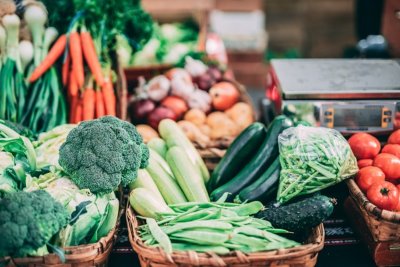Agricultural labour in the UK
The UK’s agricultural workforce has always been on the frontline of change. As an industrialising country the UK went through the world’s first technology-driven economic transition, and in the present day a further wave of innovation in agri-tech looks poised to decimate the workforce once again. This trend will continue to be reinforced by the government’s policy of promoting agri-technology and encouraging trade patterns that tend to import high-labour products and export low-labour products.
At the same time, market conditions and policy changes have made the life of farmers and farm workers more insecure, with increasing pressure from market-dominating supermarkets pushing down on the profitability of farming and workers’ protections disappearing along with the Agricultural Wages Board. Over time the composition of the workforce has changed, towards a more flexible labour force with many more casual or seasonal workers employed, often from abroad. Any change in Britain’s economic relationships with the EU and the rest of the world may affect who can and will take up these casual positions.
Based on current trends the agricultural workforce of the future will be smaller but more highly skilled. This is largely a result of expected changes in technology, but changes in technology are themselves driven by economic pressures to reduce labour inputs. With a widely perceived public image problem and a labour force that is currently dominated by men over 55 years of age, attracting talented and passionate people to the sector could be a challenge. On the other hand various initiatives on the ground across the UK are providing opportunities for enthusiastic starters to access land and learn agricultural skills and increasing numbers are taking up further education and apprenticeships in the sector.
Most of these trends are indifferent to the environmental and public health challenges that our farming system must face up to in the coming years. Public policy will be essential both to shift towards healthier diets and to mitigate agriculture’s significant contribution to climate change by changing what we produce and how. On both environmental and public health grounds the required interventions – from reducing meat consumption to more environmentally sensitive production methods – will tend to require more labour input compared to the baseline trend.
Farming communities have always been the first to feel the consequences of technological change and global economic forces. The coming decades will be no exception.
Sustainable Farming Campaign: Sustain encourages integration of sustainable food and farming into local, regional and national government policies.
Sustain
The Green House
244-254 Cambridge Heath Road
London E2 9DA
020 3559 6777
sustain@sustainweb.org
Sustain advocates food and agriculture policies and practices that enhance the health and welfare of people and animals, improve the working and living environment, promote equity and enrich society and culture.
© Sustain 2024
Registered charity (no. 1018643)
Data privacy & cookies
Icons by Icons8
